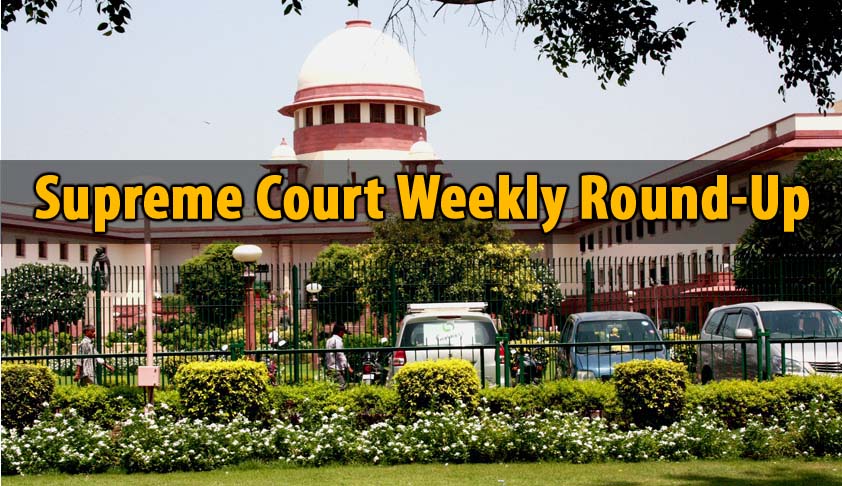- Home
- /
- Top Stories
- /
- Supreme Court Weekly Round-Up
Supreme Court Weekly Round-Up
Ashok KM
27 Nov 2016 10:09 PM IST
Elected Representatives Have A Vital Role In Democracy: UP VidhayakNidhi Scheme UpheldThe Supreme Court on Monday upheld the validity of VidhayakNidhi Scheme in Uttar Pradesh, which provides for annual budgetary grants to Members of the Legislative Assembly and Legislative Council for facilitating development work in their constituencies. Banks Can Sell Tribal Land to Non-Tribal Even...
Next Story



